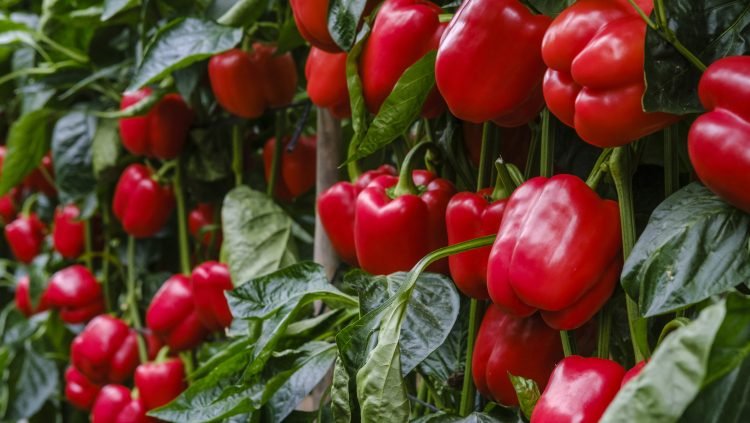Anuja Kadian, Asia Pacific Government Affairs Director, Corteva Agriscience shares her views on emerging trends in agri industry in 2024 with AgroSpectrum.
What are the future developments in technology that will drive the Indian agriculture sector?
In the rapidly evolving landscape of Indian agriculture, the future is poised for transformative technological developments that will redefine the sector.
To build a sustainable, resilient, and profitable ag-ecosystem, agriculture needs to drive a swift adoption of emerging technologies, precision agriculture, and sustainable farming practices.
Artificial Intelligence (AI), Internet of Things (IoT), and data analytics are becoming instrumental tools, providing farmers with real-time insights for informed decision-making to manage their crops.
Our initiatives focus on empowering farmers through sustainable and technology-driven solutions. Our collaborative efforts with stakeholders across the value chain aim to enhance productivity, reduce environmental impact, and ensure the long-term resilience of Indian agriculture.
Crop protection technologies, such as novel pesticides and biopesticides, are pivotal components of Corteva’s commitment to sustainable agriculture. Additionally, our emphasis on seeds and traits, leveraging biotechnology for crop improvement, underscores our dedication to ensuring food security in the face of evolving challenges.
Will the agribusiness sector also be impacted by the rising popularity of robotics?
Absolutely, the rising popularity of robotics is poised to significantly impact the agribusiness sector in India. The integration of robotics into agriculture brings forth a multitude of advantages that can enhance efficiency, productivity, and sustainability.
The integration of robotics is transforming agribusiness, enhancing precision farming, addressing labour shortages through automated harvesting and sorting, and promoting sustainability with precision weeding and real-time crop monitoring.
In controlled environments like greenhouses, robotics optimize conditions, while in the supply chain, automation streamlines tasks, reducing costs and ensuring efficient product delivery. These advancements underscore the transformative impact of robotics, fostering efficiency and sustainability across the entire agribusiness sector.
Corteva Agriscience recognises the potential of robotics in revolutionizing the agribusiness sector. Through continuous research and innovation, we aim to integrate these technologies into our solutions, contributing to a more sustainable, efficient, and resilient agricultural ecosystem.
As India embraces the possibilities offered by robotics, the agribusiness sector is likely to witness transformative changes that enhance overall productivity and competitiveness.
What are the major challenges while embedding tech into agri sector?
Embedding technology into the agriculture sector, while promising significant benefits, comes with its share of challenges. Some of the major hurdles include:
Access and Affordability: The cost of implementing and maintaining technology solutions can be a significant barrier for smallholder and resource-constrained farmers.
Digital Literacy: Farmers may lack the necessary skills and knowledge to effectively use technology.
Infrastructure Limitations: Rural areas, where much of agriculture is based, may lack robust infrastructure such as reliable internet connectivity and power supply.
Regulatory Frameworks: The absence of robust regulatory frameworks for emerging technologies in agriculture can create uncertainty and hinder adoption.
Resistance to Change: Traditional farming practices may be deeply ingrained, and there can be resistance to adopting new technologies. Providing education and demonstrating the tangible benefits of technology are essential in overcoming this resistance.
Government Support: Investing in rural infrastructure, developing digital literacy programs, and providing financial assistance can overcome infrastructure and affordability challenges.
Public Private Partnerships (PPPs): Encouraging private sector investment in research and development, developing user-friendly technology, and providing affordable financing options can make technology more accessible.
Farmer-Centric Approach: Engaging farmers in the technology selection and development process and providing training and support can address concerns and build trust.
Institutional Reforms: Creating supportive policies and regulations, promoting collaboration between stakeholders, and investing in agricultural research can foster a conducive environment for technological innovation.
Addressing these challenges requires a collaborative effort from stakeholders, including government bodies, technology providers, and agricultural communities, to create an enabling environment for the successful integration of technology into the agriculture sector.
The government is strongly pushing tech into agri sector to increase productivity and quality. How is this step being taken by the key players and how this will change the face of agri industry?
The government’s robust push to integrate technology into the agriculture sector is catalyzing transformative changes.
Major stakeholders, including the government, agribusinesses and technology providers, are actively responding to this initiative with innovative solutions aimed at increasing productivity and ensuring high-quality agricultural output.
Collaborations between technology companies and agricultural experts are fostering the creation of cutting-edge solutions that address specific challenges faced by farmers.
We aim to impart comprehensive education on advanced agricultural technologies, including the adoption of hybrid seeds, precision farming practices, and effective crop protection solutions.
By disseminating this knowledge, Corteva aims to empower farmers with the skills needed to make informed decisions, optimize resource utilization, and adopt sustainable farming practices.
One significant contribution is the introduction of the Farmer Connect app by Corteva. This innovative application serves as a valuable digital platform, offering farmers real-time access to critical information, market trends, and weather forecasts.
The Farmer Connect app goes beyond being a mere tool; it acts as a bridge, connecting farmers with relevant resources, expert advice, and the latest advancements in agriculture.
Such a collaborative approach between the government, key industry players, and farmers is poised to revolutionize the agri industry, creating a more sustainable, productive, and tech-savvy future.
What is your take on drone technology and what further upgrades are required in this?
I firmly believe that drone technology has emerged as a game-changer in agriculture. It offers a wide range of applications that enhance efficiency, precision, and sustainability. Drones provide valuable data through aerial imaging, sensors, and other technologies, enabling farmers to make informed decisions.
However, I believe upgrades required in drone technology extend beyond technical enhancements and encompass broader aspects that are essential for its widespread adoption, particularly among smallholder farmers.
As mentioned above, for widespread agricultural adoption involves several key facets. Comprehensive education and training programs are essential, empowering progressive as well as smallholder farmers to adeptly operate drones, interpret data, and integrate this technology into existing farming practices for enhanced crop management and resource optimization.
Along with this, PPPs play a pivotal role in fostering collaborative efforts to disseminate drone technology through shared resources, expertise, and outreach initiatives.
A robust regulatory framework is crucial, providing clear guidelines and standards to ensure the responsible and ethical use of drones in agriculture, addressing concerns related to privacy, safety, and compliance.
Affordability and accessibility are also critical considerations, necessitating a reduction in initial costs and economically viable ongoing support, potentially facilitated by financial incentives and subsidies.
Additionally, customisation of drone technology to meet the specific needs of smallholder farmers, including the development of smaller, cost-effective models, ensures alignment with diverse farming practices across different regions.
By Nitin Konde
Anuja Kadian, Asia Pacific Government Affairs Director,














